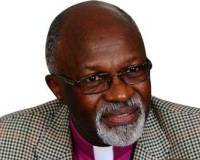Shades of Amin: law regulating public gatherings could affect freedom of worship
by - 8th August 2013
 Ugandan civil society groups have reacted with alarm to the passing into law this week of a bizarre bill that gives police extensive powers to regulate public meetings.
Ugandan civil society groups have reacted with alarm to the passing into law this week of a bizarre bill that gives police extensive powers to regulate public meetings.
Churchmen have expressed fear that the law, which human rights groups and civil society organisations have slammed as ‘draconian’, could be used against church activities like evangelical rallies, worship and even preaching.
Prohibitions
The Ugandan Parliament passed the Public Order Management Bill (POMB) two days ago (6 August) after more than two years of opposition and debate, amidst fears it will undermine basic freedoms of assembly and expression.
The law requires an organiser of a public meeting to give police ‘notice of intention to hold the meeting within five days prior to the meeting’, and makes provision on whether or not the organiser has permission from the owner of the premises.
The law seeks to regulate public meetings, specifies the duties and responsibilities of the police and participants, and also prescribes measures for safeguarding public order.
It empowers the Inspector General of Police to regulate the conduct of all public meetings, which are defined as being ‘a gathering, assembly, concourse, procession or demonstration of persons in or on any public place or premises held for purposes of discussing, acting upon, petitioning or expressing views on a matter of public interest’.
It even empowers the Police to disperse gatherings of as few as three people, if they deem them to be breaking the numerous provisions.
Sections of the church, the political opposition, civil society, and human rights bodies have slammed it. Sarah Jackson, Amnesty International’s deputy director for Africa, warned on Tuesday: ‘Prohibitions on open political discussion and peaceful demonstration are alarming and utterly impermissible under international law.’
Underhand
Senior church figures fear they even undermine the Lord’s Prayer.
‘We may not be able to share in the pulpit matters of political and national importance as mandated in the Lord’s Prayer, ‘May Your Kingdom come; May your will be done; on earth as it is in heaven’, the Rt. Rev. Zac Niringiye, the retired Anglican bishop of Kampala, told Lapido.
Critics have slammed the law as a further attempt by President Yoweri Museveni, in power for 27 years, to entrench his rule by silencing dissent.
‘It is the crowning point of a complete reversal of democracy that has been happening in the last 10-15 years. It is a “mobocracy” and not a democracy,’ said Godber Tumushabe, the executive director of the rights lobby group the Advocates Coalition for Development & Environment (ACFODE) in reference to the heated and seemingly underhand methods with which Parliament passed the law.
The Opposition says that the passing of the Bill was done behind their backs by ruling National Resistance Movement (NRM) members who hold an overwhelming majority in Parliament.
A retired youth pastor expressed fear that the law could be used to ban church gatherings, as happened in the 1970s when a similar decree resulted in believers ceasing to attend church in fear of arrest and harassment by President Idi Amin’s security apparatus, and persecution of the church by the military dictatorship grew.
'Unconstitutional'
The Government has defended the new law, with the Prime Minister, Amama Mbabazi, saying, ‘This was a decision of the people. In democracy we must respect the rights of everyone. Our rules and the Constitution are very clear on this.’
A ruling party MP, Anifa Kawooya, dismissed claims that the law aimed at stifling dissent. ‘The Bill was not directed at the Opposition, but it is for the good of the country,’ he said.
But critics have countered that the law is actually unconstitutional.
‘Article 1 of the Constitution says that power belongs to the people. What this law has done is to take away the right of people to assemble. Three people cannot gather! We shall challenge this in the Constitutional Court,’ human rights lawyer Ladislaus Rwakafuzi told Lapido Media.
 Human Rights Watch spokesperson Maria Burnett said, ‘This Bill is a devastating blow for freedom of expression and assembly in Uganda. Political demonstrations already face serious obstacles, including the use of live ammunition on innocent bystanders and demonstrators. With this law in force, any spontaneous peaceful demonstration of more than three people will be a criminal act. The 2016 elections are just around the corner and space for political dissent is shrinking fast.”
Human Rights Watch spokesperson Maria Burnett said, ‘This Bill is a devastating blow for freedom of expression and assembly in Uganda. Political demonstrations already face serious obstacles, including the use of live ammunition on innocent bystanders and demonstrators. With this law in force, any spontaneous peaceful demonstration of more than three people will be a criminal act. The 2016 elections are just around the corner and space for political dissent is shrinking fast.”
A senior clergyman, Bishop Joel Obetia of the Anglican diocese of West Nile, warned that ‘If any law leaves out even a single person it is a bad law and must be challenged to make it good for every Ugandan. This is a bad law because it gives permission of assembly to an institution.
‘The right to assemble is a fundamental right which cannot be left to police. It can be [seen as] good today but tomorrow a bad leader will come and require that you the Pastor, Archdeacon, Bishop, or Archbishop, need to ask for permission to conduct a service in a church. This is how a bad law can be abused.’
- Log in to post comments
